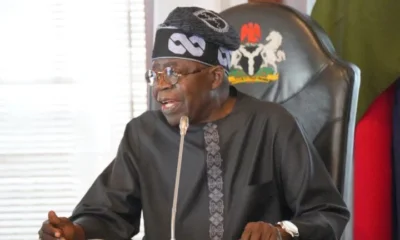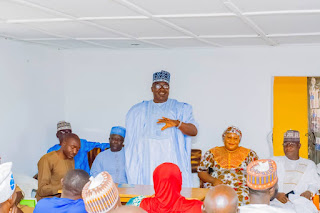Nigerians are now at the mercy of criminals with nowhere safe, Sultan of Sokoto, Alhaji Muhammad Sa’ad Abubakar III, said on Wednesday.
He described Saturday’s killing of no fewer than 43 rice farmers in Borno as “a senseless act”. The senate put the death toll at 67.
According to him, bandits now control many northern communities and set rules that must be obeyed.
The Sultan urged the Federal Government to stop paying lip service to security matters.
He spoke under the auspices of the apex Islamic body in Northern Nigeria, the Jama’atu Nasril Islam (JNI),
He asked Imams across the country to embark on special prayer against insecurity five times a day.
A statement by the JNI’s Secretary-General, Dr Khalid Abubakar Aliyu, quoted the Sultan as saying: “Wanton killings, acts of banditry, kidnapping for ransom, high rate of unemployment among the youths, rape and all forms of terrorisms have now become the ‘new trend’ in our communities.
“Nigerians have become so much terrified, as nowhere is safe; the home, the farms and the roads. Bandits now rule in many communities, they set rules that must be obeyed.
“Jama’atu Nasril Islam (JNI) under the leadership of Alhaji Muhammad Sa’ad Abubakar, the Sultan of Sokoto and the President-General, identifies with the government and people of Borno State over the gruesome massacre of innocent rice farmers in Zabarmari, Jere Local Government, which was the height of bloodletting ever committed in recent history.
“Forty-three human beings as reported by the media were slaughtered without any intervention by the security forces in the area. The senseless act stands condemned in the strongest of terms.”
Alhaji Abubakar said it was unfortunate that the common man is now caught in-between two contending phenomenon: when he goes to the farm, he gets killed and when he stays at home he dies of hunger.
“It should be known that this singular act of Zabarmari was a calculated attempt to instil fear among farmers and jeopardise the frantic efforts of returning Internally Displaced Persons (IDPs) to their localities by the Borno State government under the leadership of Governor Babagana Umar Zulum.
“For how long would we continue to live a life in fear? For how long can we continue to wait in vain? For how long shall we continue to condemn acts of terrorism without any concerted efforts in ending it?
“For how long would we continue to remain indolent? And for how long can we continue to remain hopeless in a precarious situation such as what we are in presently?
“Our heartrending condolences to the families of those martyred in the Zabarmari massacre, the people and government of Borno State and Nigeria in general.
“Moreover, all that was needed immediately the incidence occurred was a proactive measure by the Federal Government, such as a prompt visit within 24 hours to the affected areas.
“This will assuage the affected communities to have more confidence in their leaders, seeing that they are not left alone in their ordeal and it will also send a strong signal to insurgents that the government is ready to go to any length to protect its people.”
Sultan Abubakar praised the “tireless efforts” of Governor Zulum, praying Allah “to continue to guide and protect him, being a true servant-leader”.
The first-class monarch made some recommendations on how to tackle the problem.
The statement added: “We once again call on the Federal Government to rise to its responsibilities and do well beyond the traditional condemnation, as lip service on security matters should stop. Nigerians are desperately yearning for concrete actions.
“Thus, we call on the government to: always identify with victims and places of attacks by being physically on the ground to commiserate with the people. A national broadcast after the visit is very necessary.
“Reprimand/prosecute officials that are found wanting in the discharge of their assignment(s), to serve as a deterrent to other nonchalant officials.
“Collaboration with relevant security agencies with a timeline to bringing an end or at best decapitate all security threats bedevilling the country and also mop small arms and light weapons (SALWs) in the hands of criminals or else Nigeria will continue to witness the rise arms proliferation for self-defence amongst Nigerians since the government failed to do so.
“Spare no genuine effort to immediately provide support to all the affected communities, as many are now displaced, becoming internally displaced persons (IDPs) in their land, which further speaks volumes, considering the attendant social nuances often associated with IDP camps.
“On the other hand, we note with dismay that our societal values have been relegated to alien norms, thus parents and community leaders must be very vigilant and always remain introspecting over their wards and/or children, as the prevalence of illicit drugs intake amongst the youths is getting out of hand.
“Child upbringing is a responsibility vested in each parent by Allah, failure of which spells doom to our collective responsibility. Qur’an 13:11 provides better insights.
“These and many more similar gestures may not immediately bring the insurgency to an abrupt end but will reassure the masses and calm frayed nerves seeing that the authorities are truly on top of the situation.
“This will bring hope and soothe the hearts, not the exact opposite, being witnessed in recent years, which is providing fertile ground for citizens to harbour ill feelings against the government of the day.”

 BIG STORY5 days ago
BIG STORY5 days ago
 BIG STORY3 days ago
BIG STORY3 days ago
 BIG STORY5 days ago
BIG STORY5 days ago
 BIG STORY2 days ago
BIG STORY2 days ago
 BIG STORY5 days ago
BIG STORY5 days ago
 BIG STORY2 days ago
BIG STORY2 days ago
 BIG STORY4 days ago
BIG STORY4 days ago
 BIG STORY4 days ago
BIG STORY4 days ago



























